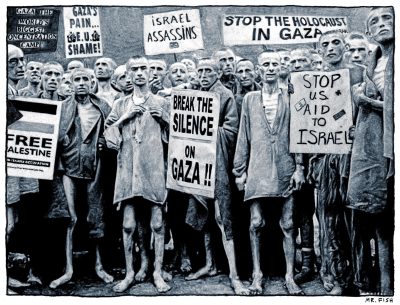
All Global Research articles can be read in 51 languages by activating the Translate Website button below the author’s name (only available in desktop version).
To receive Global Research’s Daily Newsletter (selected articles), click here.
Click the share button above to email/forward this article to your friends and colleagues. Follow us on Instagram and Twitter and subscribe to our Telegram Channel. Feel free to repost and share widely Global Research articles.
Global Research Fundraising: Stop the Pentagon’s Ides of March
***
There is very widespread acceptance, almost a consensus, among all people who value peace and want to reduce the extreme distress of the people of Gaza that ceasefire should take place as early as possible.
So whenever the USA used a veto against proposals for ceasefire which came up before the UNO’s Security Council, the USA very rightly faced strong and widespread criticism.
Hence when China and Russia vetoed a US draft resolution for ceasefire introduced by the USA on March 22, then this veto too should be condemned by all those who stand for peace and reducing the extreme distress being suffered by the people of Gaza on daily basis.
In fact the USA draft resolution received the support of 11 members of the Security Council and was opposed by only 3 (Algeria in addition to China and Russia). It could not be adopted only because of the veto of China and Russia who as permanent members of the Security Council having veto rights.
The stand taken by those opposing the USA draft resolution was that its language was ambiguous and was not strong enough. They have a point here as the US draft used rather curious language. Despite this flaw, however, it would have been a step forward to go ahead with this. After all, can Russia and China ever hope that the USA will use just the kind of language they want?
The USA draft resolution, instead of more directly demanding ceasefire, had instead spoken of the ‘imperative of an immediate and sustained ceasefire’ to prevent harm to civilians on all sides. While this could have been drafted in a better way more in keeping with the call for unconditional ceasefire made in some earlier resolutions, there is also a positive aspect as words ‘sustained’ and ‘immediate’ were included in the context of ceasefire.
Some of those who support the veto of March 22 say that the US draft resolution was conditional and linked to hostage release. Others complain that the USA resolution was critical of Hamas. Well, these cannot be the reasons for not supporting a resolution on ceasefire. Criticism of Hamas 7 October attack is well-justified in several contexts. The release of hostages has a strong humanitarian base (just as the release of a much larger number of Palestinian prisoners has a strong humanitarian base). Above all we need to remember that the need for immediate ceasefire and sustained ceasefire is very pressing.
Those who have been extremely critical of the US role in Gaza—rightly so—are probably too suspicious of US intentions to go ahead with any peace proposal emanating from the world’s most biggest and most aggressive power. One can understand their suspicions, but nevertheless one must assert that this is not how peace efforts can go ahead. We must be prepared to use whatever peace openings exist in order to somehow clinch ceasefire and peace as early as possible, particularly when the conflict is extracting such terrible costs on daily basis and when the risk of escalation on several fronts is also so high.
As this writer has emphasized time and again, the perspective of the peace movement and peace activists has to be different from the perspective of power rivalries.
From the perspective of the peace movement the March 22 veto by China and Russia should be condemned for the same reason that the earlier vetoes by the USA of ceasefire resolutions should be condemned—namely that these vetoes are delaying and obstructing ceasefire at a time when this is needed urgently and needed as early as possible.
It should be recognized by all countries that hold veto power in the Security Council that ceasefire is a very big need and veto power should not be used arbitrarily to delay ceasefire or to obstruct ceasefire.
*
Note to readers: Please click the share button above. Follow us on Instagram and Twitter and subscribe to our Telegram Channel. Feel free to repost and share widely Global Research articles.
Bharat Dogra is Honorary Convener, Campaign to Save Earth Now. His recent books include Planet in Peril, Protecting Earth for Children, Earth without Borders and A Day in 2071. He is a regular contributor to Global Research.
Featured image: Never Again and Again and Again – by Mr. Fish
Comment on Global Research Articles on our Facebook page
Become a Member of Global Research
Source link

